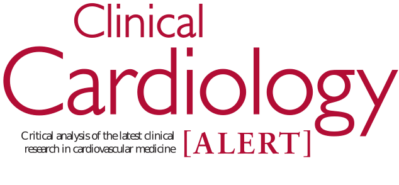
Clinical Cardiology Alert – July 1, 2024
July 1, 2024
View Issues
-
Impella Scores a Big Win in Infarct-Related Cardiogenic Shock, but with Big Caveats
In this randomized controlled trial of patients presenting with ST-elevation myocardial infarction and cardiogenic shock, use of the Impella microaxial flow pump resulted in improved survival but also higher adverse safety events compared with standard care.
-
Empagliflozin Post-Acute Myocardial Infarction
A prespecified further analysis of the EMPACT-MI trial has shown that patients within two weeks of an acute myocardial infarction who are at risk for heart failure who receive empagliflozin compared to placebo have significantly fewer episodes of heart failure hospitalizations over a median follow-up of 18 months.
-
Insights from the Apixaban vs. Aspirin for Subclinical Atrial Fibrillation Trial
An analysis of the ARTESiA trial of apixaban vs. aspirin for stroke prevention in subclinical atrial fibrillation by CHA2DS2VASc score has shown that the benefits of apixaban outweigh the risk of major bleeding at scores > 4 and the opposite is true at scores < 4.
-
Are Women with Atrial Fibrillation Still at Higher Risk of Ischemic Stroke?
A Finnish national database study of newly diagnosed atrial fibrillation from 2007-2018 has shown that the independent association of ischemic stroke risk with female sex initially was high but trended downward to nonsignificant at the end of the study. This has implications for the risk stratification of atrial fibrillation patients regarding oral anticoagulation therapy.
-
Cardioversion in Obese Patients
A multicenter, single-blind, randomized clinical trial of dual vs. single defibrillator shocks for cardioverting obese patients with atrial fibrillation showed that dual defibrillation was significantly more effective without any increase in adverse events.
